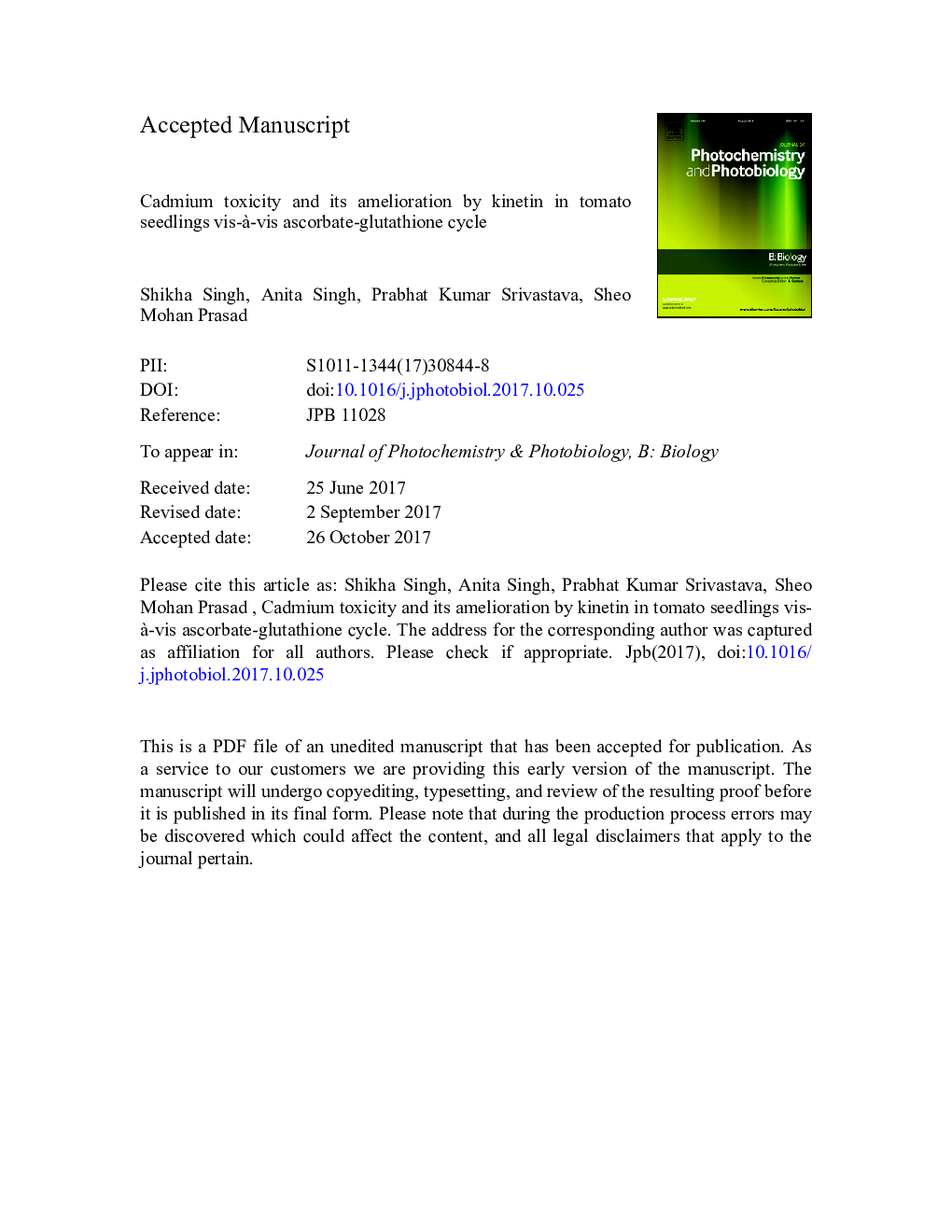| Article ID | Journal | Published Year | Pages | File Type |
|---|---|---|---|---|
| 6493405 | Journal of Photochemistry and Photobiology B: Biology | 2018 | 32 Pages |
Abstract
The supplementation of plant hormones may enhance the tolerance capacity of plants against certain environmental stresses by increasing their physiological functioning and detoxification capacity. To answer the question that whether a phytohormone 'kinetin' (KN, 6-furfuylaminopurine), one of the artificial cytokinins could ameliorate the cadmium induced toxicity in tomato seedlings, the effect of KN was assessed in differentially cadmium (Cd1: 3 mg kgâ 1 sand and Cd2: 9 mg kgâ 1 sand) intoxicated tomato seedlings by estimating the changes in reactive oxygen species (ROS, viz. superoxide radical and H2O2 generation) and probable alteration in photosystem II photochemistry, ascorbate-glutathione cycle enzymes and their metabolites. Accumulation of Cd in tomato seedlings increased the production of ROS by negatively impacting PS II photochemistry (decrease in Fv/Fm (ÏP0), Ψ0, ÏE0 and PIABS and increase in energy fluxes per reaction centre: ABS/RC, ET0/RC, TR0/RC and DI0/RC) manifested by lowered fresh mass despite the accelerated activity of AsA-GSH cycle enzymes (viz. ascorbate peroxidase, APX; glutathione reductase, GR; dehydroascorbate reductase, DHAR and monodehydroascorbate reductase; MDHAR). Simultaneous application of kinetin (10 μM) alleviated the negative effects on the fresh mass and lowered the ROS level by positively affecting PS II photochemistry and further rise in AsA-GSH cycle enzymes and their metabolites.
Keywords
DI0/RCmonodehydroascorbate reductasedehydroascorbateMDHARPS IIdehydroascorbate reductaseDHARET0/RCAPXFv/F0GSHASAMDATR0/RCΨ0ABS/RCreduced ascorbateOxidative stressDHAQuantum yield of electron transportPhotosystem IImalondialdehydeascorbate peroxidaseAscorbate-glutathione cycleCadmiumreduced glutathionekinetinglutathione reductase
Related Topics
Physical Sciences and Engineering
Chemical Engineering
Bioengineering
Authors
Shikha Singh, Anita Singh, Prabhat Kumar Srivastava, Sheo Mohan Prasad,
